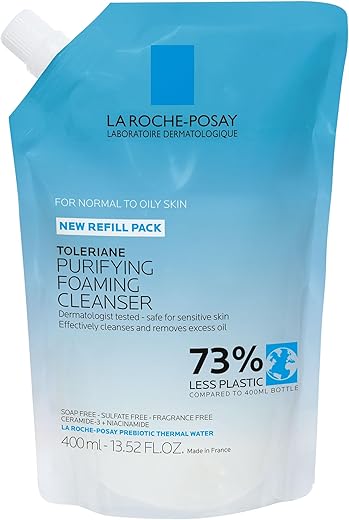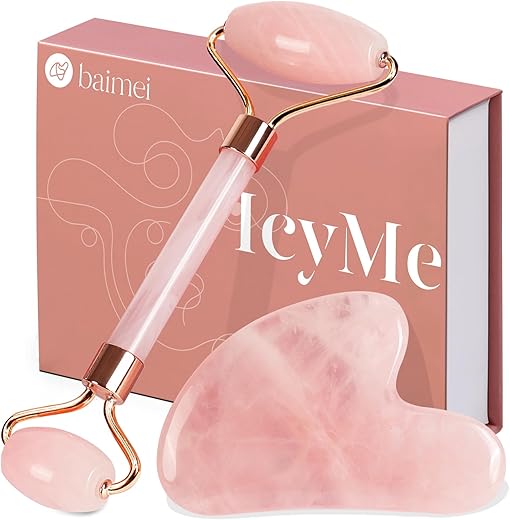
Common Mistakes to Avoid When Using Face Scrubs on Oily Skin
We’ve all been there – dealing with oily skin can be a frustrating battle. And when it comes to finding the right skincare routine, there’s no shortage of advice out there. But have you ever wondered if you’re making some mistakes when using face scrubs on your oily skin? Don’t worry, you’re not alone. In this blog post, we’ll delve into the common mistakes people make when using face scrubs and provide you with some valuable tips on how to avoid them. So, if you’re ready to achieve a fresh and radiant complexion, keep reading!
Top-rated face scrubs for controlling oil and achieving a fresh, matte complexion




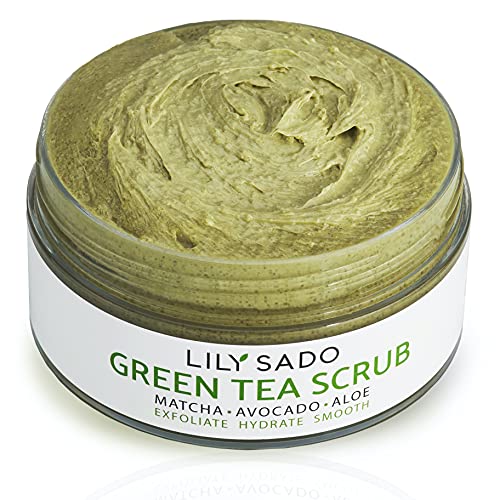

Choosing the wrong scrub for oily skin
When it comes to skincare, one size does not fit all. This is especially true for individuals with oily skin. With its unique challenges, oily skin requires a tailored approach to achieve a healthy and balanced complexion. One common mistake that many people make is using the wrong scrub for their oily skin. In this blog post, we will explore the consequences of choosing the wrong scrub and provide recommendations on the best types of scrubs to use.



The Consequences of Using the Wrong Scrub
Using a face scrub that is not designed for oily skin can have a range of negative consequences. Here are a few potential outcomes that you may experience:
- Excessive Dryness: Many scrubs on the market are formulated to target dry or normal skin types. These scrubs often contain ingredients that strip away excess oil, which can lead to the overproduction of sebum and result in even oilier skin.
- Clogged Pores: Oily skin is prone to clogged pores and acne breakouts. Using a scrub that is too harsh or contains pore-clogging ingredients can exacerbate these issues, leading to more frequent breakouts.
- Skin Irritation: Oily skin can also be sensitive, and using the wrong scrub can cause irritation and redness. This can further compromise the skin’s barrier function and make it more susceptible to environmental stressors.
Choosing the Right Scrub for Oily Skin
To avoid these undesirable consequences, it is crucial to choose a face scrub that is specifically formulated for oily skin. Here are some key factors to consider when selecting a scrub:
1. Look for Oil-Fighting Ingredients
Opt for scrubs that contain ingredients known for their oil-controlling properties. Some effective ingredients for oily skin include:
- Salicylic Acid: Known for its ability to exfoliate and penetrate deep into the pores, salicylic acid helps to unclog and minimize the appearance of pores.
- Tea Tree Oil: With its natural antibacterial properties, tea tree oil can help reduce inflammation and prevent acne breakouts.
- Charcoal: A popular ingredient in skincare, charcoal has the ability to draw out impurities and excess oil from the skin.
2. Consider the Texture of the Scrub
Choose a scrub with a texture that is suitable for oily skin. Avoid scrubs with large particles or abrasive textures, as they can cause micro-tears in the skin and further irritate the oil glands. Look for scrubs with finer particles or gentle exfoliating agents like jojoba beads or rice powder.
3. Focus on Balancing and Hydrating Ingredients
Contrary to popular belief, oily skin still requires hydration. Look for scrubs that contain ingredients like hyaluronic acid or aloe vera, which provide hydration without adding excess oil to the skin. These ingredients help maintain the skin’s moisture balance and prevent the overproduction of sebum.
4. Frequency of Use
Consider how often you should use a scrub for oily skin. While exfoliation is necessary to remove dead skin cells and unclog pores, overdoing it can disrupt the skin’s natural barrier. Aim to use a scrub 1-2 times per week to maintain a healthy balance.
Using face scrubs too frequently
Oily skin can be a challenge to manage, and many people turn to face scrubs as a solution. While using face scrubs can be beneficial for oily skin, it is crucial to understand that moderation is key. Overusing face scrubs can actually do more harm than good. In this blog section, we will delve into the negative effects of excessive scrubbing on oily skin and provide guidelines on how often to use face scrubs for optimal results.


The Negative Effects of Excessive Scrubbing
1. Stripping Away Natural Oils
One of the main drawbacks of overusing face scrubs on oily skin is that it can strip away the skin’s natural oils. While it may seem counterintuitive, our skin needs a certain amount of oil to stay healthy and balanced. Excessive scrubbing can disrupt the skin’s natural oil production, leading to dryness, irritation, and even an overproduction of oil to compensate for the loss.
2. Damaging the Skin Barrier
The skin barrier acts as a protective shield, keeping moisture in and harmful elements out. Excessive exfoliation with face scrubs can weaken this barrier, making the skin more vulnerable to environmental aggressors, such as pollution and bacteria. This can result in increased sensitivity, redness, and even breakouts.
3. Aggravating Acne
Many individuals with oily skin also struggle with acne. While face scrubs can help unclog pores and remove dead skin cells, using them too frequently can aggravate existing acne or even trigger new breakouts. The mechanical action of scrubbing can irritate the skin, leading to inflammation and further worsening acne symptoms.
Guidelines for Using Face Scrubs on Oily Skin
To maintain the health and balance of your oily skin, it is essential to follow some guidelines when incorporating face scrubs into your skincare routine. Here are some key points to keep in mind:
- Choose the Right Scrub: Opt for a gentle scrub specifically formulated for oily or acne-prone skin. Look for ingredients like salicylic acid or tea tree oil, which can help control excess oil and treat acne.
- Frequency of Use: It is recommended to use a face scrub no more than 2-3 times a week. This frequency allows for effective exfoliation without over-stripping the skin.
- Gentle Application: When using a face scrub, apply it with gentle, circular motions using your fingertips. Avoid using excessive pressure or abrasive tools, as this can cause micro-tears in the skin.
- Moisturize: After using a face scrub, always follow up with a lightweight, oil-free moisturizer to replenish hydration and maintain the skin’s moisture balance.
The Mistake of Harsh Scrubbing on Oily Skin
When it comes to skincare, exfoliation is an essential step in maintaining a healthy complexion. However, many people with oily skin make the mistake of scrubbing too aggressively in an attempt to remove excess oil and unclog their pores. Unfortunately, this harsh approach can do more harm than good. In this blog section, we will explore the potential damage caused by over-scrubbing and provide tips on how to properly exfoliate oily skin.
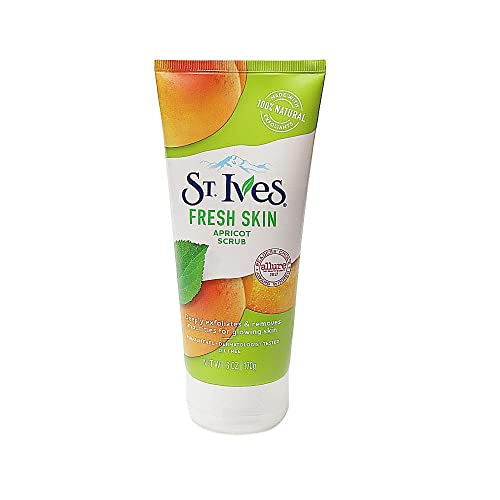


The Potential Damage of Harsh Scrubbing
- Irritation and Inflammation: Oily skin already tends to be more prone to irritation, and aggressive scrubbing can exacerbate this issue. The friction caused by harsh scrubbing can damage the skin’s protective barrier, leading to redness, inflammation, and even breakouts.
- Increased Oil Production: Paradoxically, aggressive scrubbing can actually trigger the skin to produce more oil. When the skin’s natural barrier is compromised, it tries to compensate by overproducing oil, resulting in even oilier skin and potential acne flare-ups.
- Microscopic Tears: Scrubbing too harshly can cause tiny tears in the skin’s surface, leaving it vulnerable to infection and further irritation. These micro-tears can also lead to a compromised skin barrier, which can make it easier for bacteria to enter and cause breakouts.
Tips for Proper Exfoliation
To exfoliate oily skin effectively without causing damage, consider the following tips:
- Choose the Right Exfoliant: Opt for chemical exfoliants over physical scrubs. Chemical exfoliants, such as alpha-hydroxy acids (AHAs) or beta-hydroxy acids (BHAs), work by dissolving dead skin cells and unclogging pores without the need for aggressive scrubbing.
- Gentle Application: Apply the exfoliant using light, circular motions with your fingertips. Avoid using excessive pressure or scrubbing vigorously. Let the product do the work for you.
- Frequency: Oily skin can benefit from regular exfoliation, but it’s important not to overdo it. Start with exfoliating once or twice a week and gradually increase frequency if your skin tolerates it well.
- Avoid Overdrying: After exfoliating, follow up with a gentle, oil-free moisturizer to prevent the skin from becoming overly dry. Hydration is essential for maintaining a healthy skin barrier.
- Sun Protection: Exfoliating can make your skin more susceptible to sun damage, so always remember to apply a broad-spectrum sunscreen with an SPF of 30 or higher before heading out.
Benefits of Proper Exfoliation
Proper exfoliation for oily skin can bring about a range of benefits, including:
- Removal of dead skin cells and unclogging of pores, reducing the likelihood of breakouts.
- Improvement in skin texture and tone, resulting in a smoother and more even complexion.
- Enhanced absorption of skincare products, allowing them to penetrate more effectively.
- Reduced appearance of acne scars and hyperpigmentation over time.
By following these tips for proper exfoliation, you can effectively address oily skin concerns without causing harm or irritation. Remember, gentle and consistent care is key to maintaining a healthy and balanced complexion.
Sources:
- The Importance of Exfoliating Oily Skin
- Why You Shouldn’t Exfoliate Oily Skin Every Day
- Best Exfoliation Practices for Oily Skin
Neglecting to Moisturize After Scrubbing: The Importance of Hydration
When it comes to skincare, there’s a common misconception that moisturizing is only necessary for dry skin types. However, this couldn’t be further from the truth. Even if you have oily skin, moisturizing is an essential step that should never be skipped, especially after using a face scrub. In this blog section, we’ll delve into why neglecting to moisturize after scrubbing can be detrimental to your skin and recommend suitable moisturizers for oily skin.
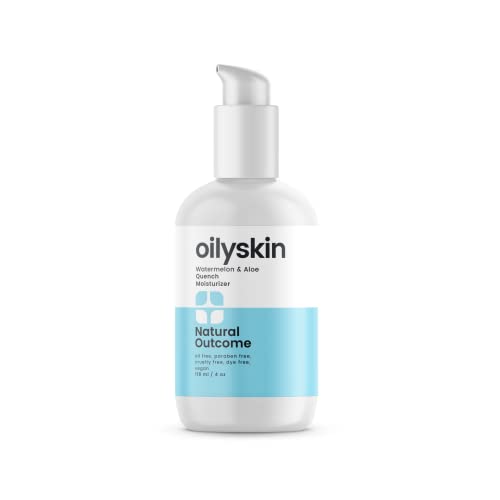


Understanding the Role of Moisturizers
Before we dive into the importance of moisturizing after exfoliating, let’s understand why moisturizers are essential for the skin, regardless of its type. Moisturizers play a crucial role in maintaining the skin’s hydration levels, preventing water loss, and protecting the skin barrier. By replenishing moisture, moisturizers help keep the skin soft, supple, and healthy-looking.
The Dangers of Neglecting Moisturization
When you scrub your skin, whether it’s with a physical exfoliant or a chemical exfoliant, it not only removes dead skin cells but also strips away some of the natural oils present on your skin. This can cause your skin to feel tight, dry, and even trigger an overproduction of oil as a defense mechanism. Hence, failing to moisturize after scrubbing can lead to several issues, including:
- Dehydration: Without proper moisturization, your skin can become dehydrated, resulting in a dull and lackluster complexion.
- Imbalance: Neglecting to moisturize can disrupt the skin’s natural balance, leading to an overproduction of oil, which can exacerbate acne and other skin concerns.
- Irritation: Scrubbing can cause some irritation, and without a moisturizer, your skin’s barrier function may weaken, making it more susceptible to further irritation and sensitivity.
Moisturizers Suited for Oily Skin
Now that we understand the importance of moisturization, let’s explore some suitable moisturizers for oily skin. It’s essential to choose products that are lightweight, oil-free, and non-comedogenic to avoid clogging pores. Here are a few options to consider:
- Gel Moisturizers: Gel-based moisturizers are lightweight, fast-absorbing, and provide ample hydration without leaving a greasy residue.
- Oil-Free Lotions: Look for oil-free lotions specifically formulated for oily skin types. These moisturizers provide hydration without adding extra shine or heaviness.
- Hydrating Serums: Serums with hydrating properties are great for oily skin as they provide intense moisture without the heaviness of a cream or lotion.
Comparing Moisturizers for Oily Skin
To make your selection process easier, here’s a comparison table outlining some key features and benefits of different moisturizers suitable for oily skin:
| Moisturizer | Key Features | Benefits |
|---|---|---|
| Gel Moisturizer | Lightweight and fast-absorbing | Provides hydration without greasiness |
| Oil-Free Lotions | Formulated for oily skin types | Offers moisture without adding shine or heaviness |
| Hydrating Serums | Intensely moisturizing and lightweight | Provides deep hydration without a heavy texture |
Key Takeaways for Effective Face Scrub Use on Oily Skin
To sum it up, by being mindful of the mistakes discussed in this blog post, individuals with oily skin can maximize the benefits of face scrubs. Selecting the appropriate product, utilizing it sparingly, avoiding aggressive scrubbing, and ensuring proper moisturization are key steps towards achieving a well-nourished and balanced complexion. By implementing these recommendations, readers can effectively care for their oily skin and promote a healthier overall appearance.

Hey, I’m Ava Wilson—a skincare enthusiast and a certified esthetician. I’m dedicated to sharing my knowledge and empowering others to achieve healthy, glowing skin through simple, effective routines and natural remedies. Join me on this exciting skincare journey, and let’s unlock your skin’s potential for a confident, beautiful you.


